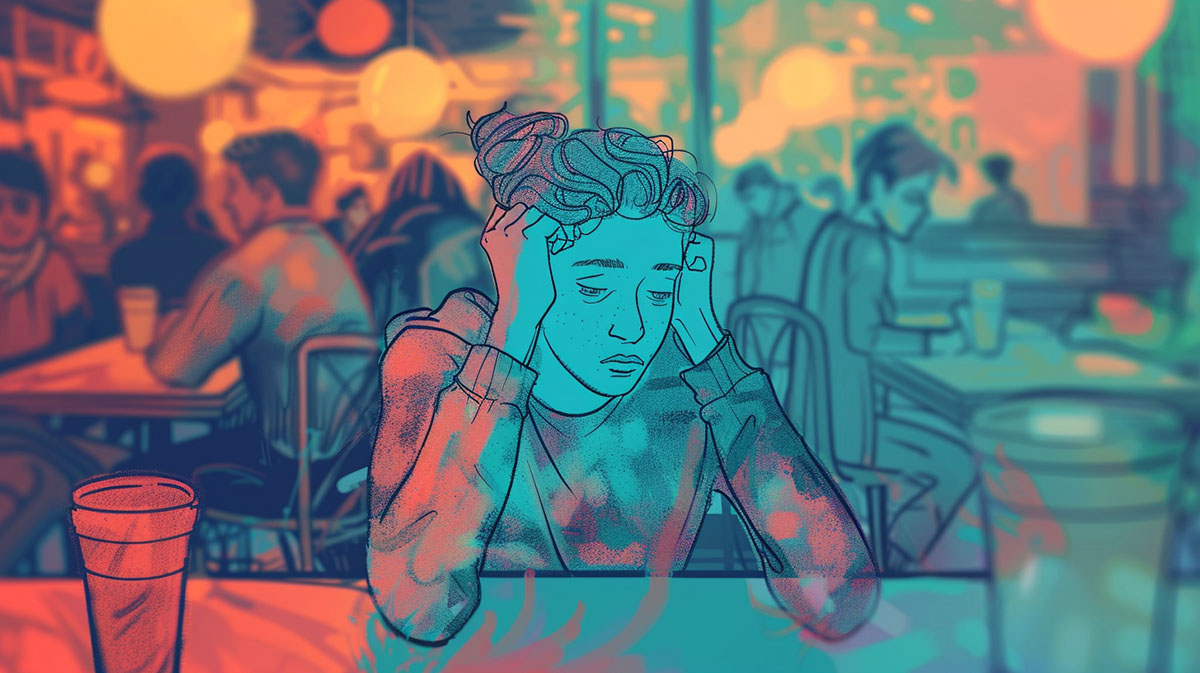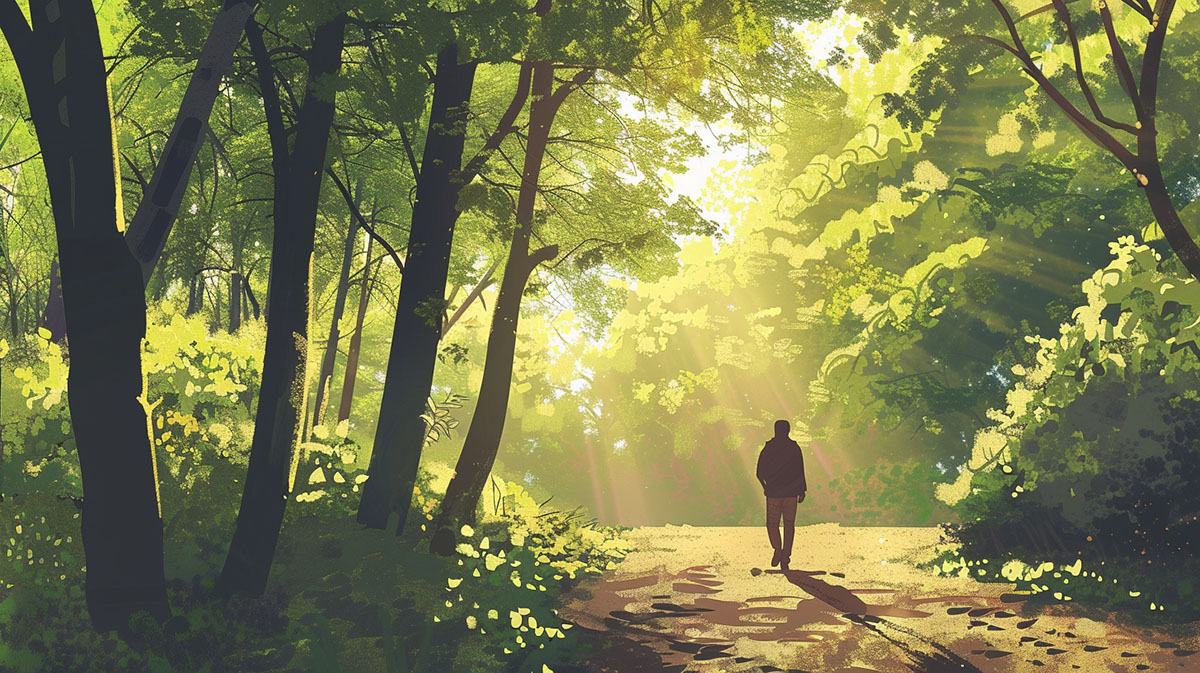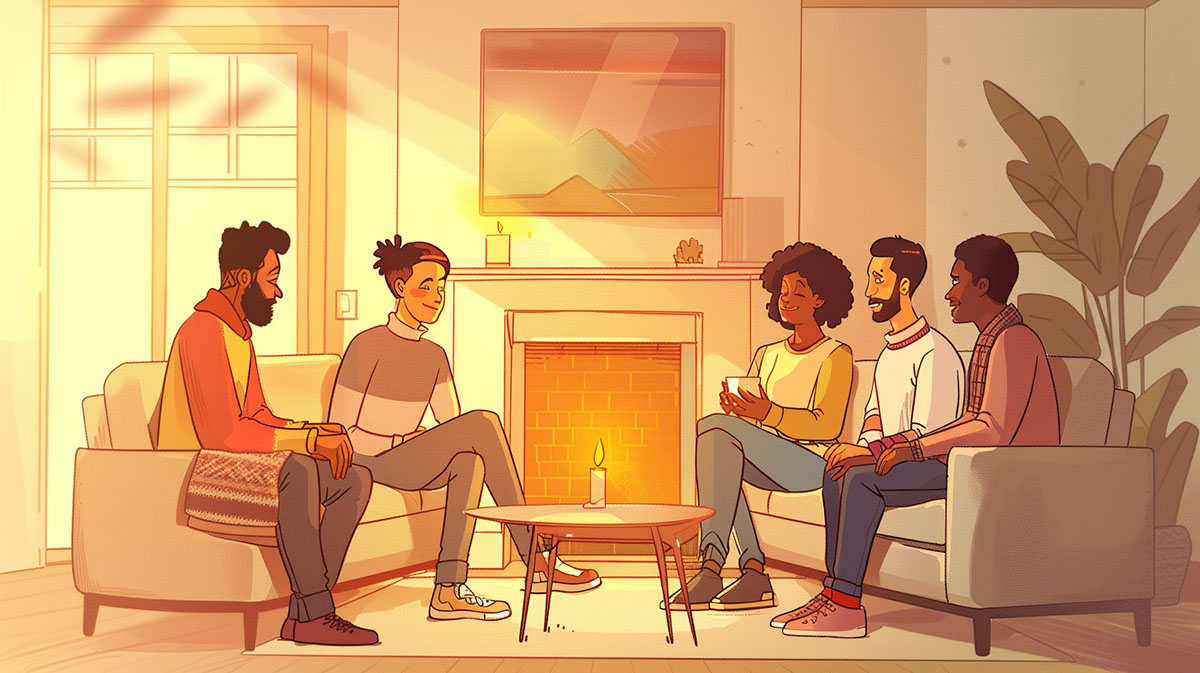What is an introvert?

An introvert is someone who tends to feel more energized and comfortable in solitary or low-stimulation environments rather than in highly social or stimulating settings. Introverts often prefer introspective activities, like reading, writing, or spending time in nature, and they typically enjoy deep, meaningful conversations with a small circle of close friends rather than large social gatherings.
While introverts can certainly enjoy social interactions, they usually find them draining (sometimes called a social battery) and need time alone afterwards to recharge. This inward focus often leads to a high degree of self-awareness, reflection, and a preference for observing before participating. Introversion is not about disliking people or being shy but rather about how a person processes and responds to the social and environmental stimuli around them.
Let's look at some signs of introversion, and I will also give my personal experiences with each sign.
8 Signs of Introversion - Personality Traits
Here are eight common signs of introversion:
1. Socializing Drains Your Energy
Do you ever feel utterly drained after being around a large group of people? After a day full of social interactions, do you crave a quiet space to recharge alone? This is a hallmark personality trait of introversion. Unlike extroverts, who feel energized by social gatherings, introverts often find such interactions require significant energy.
However, this doesn't mean that introverts shy away from socializing. Many introverts genuinely enjoy spending time with others, but they usually prefer the company of a few close friends rather than large crowds. Many introverts can suffer from social anxiety.
Personal example: Quite often, when I have visitors to my home, after about 30-45 minutes, I feel tired. Small talk is exhausting, and while I do like having company sometimes, extended periods are challenging. I often run out of things to say, and there can be extended periods of awkward silence!

2. Finding Joy in Solitude
As an introvert, your perfect day likely involves spending some quiet time alone, indulging in your favourite hobbies and interests. Whether it's getting lost in a good book, taking a serene walk in nature, or enjoying a beloved TV show, these solitary activities are what recharge and energize you. It's also very important for introverts' mental health.
But don't mistake this for a desire to be alone all the time. Many introverts genuinely enjoy the company of friends and appreciate social interactions with familiar faces. The key difference is that after a day filled with social engagements, an introvert typically needs solitude to unwind, reflect, and restore energy.
If the idea of spending a few peaceful hours alone resonates with you, there's a good chance you're an introvert at heart.
Personal example: Personal time is very important for me. I love to go for walks alone, particularly first thing in the morning after waking up. I enjoy photography and flying my drone as recharging activities. Personal time is particularly important for me after a busy, stressful day. Playing a video game can help; I love Stardew Valley.

3. A Tight-Knit Circle of Close Friends
A common myth about introverts is that they're not fond of people. While it's true that introverts often shy away from excessive socializing, they deeply value their relationships. Instead of spreading their time and energy across a wide social circle, introverts typically cultivate a small, close-knit group of friends with whom they share deep, meaningful connections.
Rather than maintaining numerous superficial acquaintances, introverts invest in long-lasting relationships filled with closeness and intimacy. One of the great strengths of introverts is their ability to form profound bonds with those they care about. They also prefer one-on-one interactions over large group settings, where they can engage more deeply with others.
If your social circle is small but filled with deep, significant relationships, there's a strong likelihood that you are an introvert.
Personal example: I have very few close friends, perhaps only one or two. Most other people are just associates that I speak to regularly. I think I have engineered this myself as an introvert. I don't think I could cope with a large circle of friends constantly popping over; it would be too much stimulation.

4. People May Struggle to Get to Know You
Introverts are often seen as quiet, reserved, and laid-back, which can sometimes be mistaken for shyness.
While some introverts may indeed be shy, it's important not to confuse an introvert's reserved nature with timidity. Most often, introverts prefer to speak thoughtfully, choosing their words carefully and avoiding unnecessary small talk.
If you tend to be the quiet, reserved type, there's a strong chance that you're an introvert.
Personal example: I've had this problem my whole life; I tend not to open up and let anyone in. To people who don't know, introverts tend to look aloof and "up themselves" or classed as a "shy person". I feel people have felt this about me, but it's not that; it's just my introverted personality. It takes me time to get to know people.
5. Overstimulation Can Leave You Feeling Overwhelmed
When introverts find themselves in hectic environments or engage in activities with a lot of noise and activity, they can feel scattered and overwhelmed. While extroverts often thrive in bustling settings, drawing energy from the excitement, introverts tend to feel drained and distracted.
Research suggests that introverts are more easily distracted than extroverts, which might explain why they prefer quieter, more serene surroundings.
If you often feel overwhelmed or unfocused in busy social situations, there's a good chance you're an introvert.
Personal example: I experience overstimulation all the time. It usually occurs in busy environments like restaurants and cinemas. I can build up a tolerance to this with regular exposure, but it never becomes the norm or completely tolerable.
6. You Possess a Strong Sense of Self-Awareness
Introverts are inward-focused by nature, often spending significant time reflecting on their inner experiences. If you feel that you deeply understand your thoughts, motivations, and emotions, you might lean more toward being an introvert.
This tendency to introspect allows introverts to cultivate a high level of self-awareness. Introverts enjoy delving into their own minds, seeking to understand themselves better. Self-discovery is a lifelong pursuit for introverts, and they often dedicate considerable time to exploring their inner world.
If you find yourself deeply self-aware and take pleasure in gaining a deeper understanding of yourself, it's likely that you have an introverted personality.
Personal example: I think a lot about self-understanding and self-improvement. I constantly think about how I can improve myself mentally and physically. What steps can I take? How have I improved in the last five years? How could I have dealt with a past scenario better?
7. You Prefer Learning by Observing
While extroverts often dive right into new experiences, learning through hands-on trial and error, introverts typically take a different approach. They tend to learn best by watching others first, absorbing information before trying something new.
Introverts often prefer to observe a task being performed multiple times until they feel confident enough to replicate it on their own. When they do engage in hands-on learning, introverts usually favor practicing in a private setting where they can hone their skills without the pressure of an audience.
If you find that you prefer to learn by watching rather than jumping straight into action, there's a good chance you have an introverted personality.
Personal example: This is true; I would prefer to be the last person to undertake an activity to find out the best way to complete the task. I can also gain examples of the best way to do things, and I feel less anxious if other people find the task challenging, too.
8. You Gravitate Toward Jobs That Offer Independence
It's no surprise that roles requiring constant social interaction are often less appealing to those who are more introverted. Instead, introverts are typically drawn to careers that allow for independence and minimal social demands.
Jobs that involve working independently, where one can focus deeply without frequent interruptions, are a great fit for introverts. For instance, careers such as writing, accounting, computer programming, graphic design, pharmacy, or art often appeal to introverts, offering the autonomy and quiet in which they thrive.
Personal example: Since graduating from university, I have been self-employed. I think I did this subconsciously because I find working in a large group setting or busy environment very challenging. Working alone in my little office works for me and avoids many things I dislike, for example a busy workplace.
Are There Different Types of Introverts?
When you think of an introvert, you might imagine someone shy and reserved, preferring solitude over socializing. However, introverts are far more diverse, with a range of personality traits and behaviors. The main introvert personality types include:
-
Social Introverts: These introverts prefer smaller gatherings to large crowds, opting for a quiet evening at home rather than a night out.
-
Thinking Introverts: Known for their introspective nature, these introverts spend a lot of time in deep thought, often engaging in creative or reflective activities.
-
Anxious Introverts: This type tends to feel uneasy or nervous in social situations, often worrying about how they're perceived.
-
Inhibited Introverts: Inhibited introverts are prone to overthinking, often taking extra time to make decisions as they carefully weigh every option.
It's important to note that many introverts possess a mix of traits from these different types and may also exhibit characteristics that don't align with the stereotypical image of introversion.
Key Information:
-
Introversion Defined: Introverts feel more energized and comfortable in solitary or low-stimulation environments, preferring introspective activities and deep, meaningful interactions over large social gatherings.
-
Energy and Social Interaction: Socializing can be draining for introverts, who often need time alone to recharge after being in social settings, even though they enjoy spending time with close friends.
-
Value of Solitude: Introverts find joy in solitary activities, essential for their mental well-being, helping them to unwind, reflect, and restore their energy.
-
Small, Deep Relationships: Introverts typically maintain a small circle of close friends, focusing on deep, long-lasting relationships rather than numerous superficial connections.
-
Diverse Types of Introverts: Introverts vary widely, with types including Social, Thinking, Anxious, and Inhibited Introverts, each with different characteristics and ways of interacting with the world.

Conclusion
Understanding introversion is not just about recognizing a preference for solitude over social interaction; it's about appreciating the unique ways introverts engage with the world. Through deep reflection, meaningful relationships, or a preference for quiet environments, introverts offer a perspective that values quality over quantity in all aspects of life.
Being an introvert is not a limitation—it's a different way of experiencing the world, one that is rich in depth, thoughtfulness, and quiet strength.
I would love to hear your thoughts, feelings, and experiences about being an introvert. Please comment below or join the forum.
